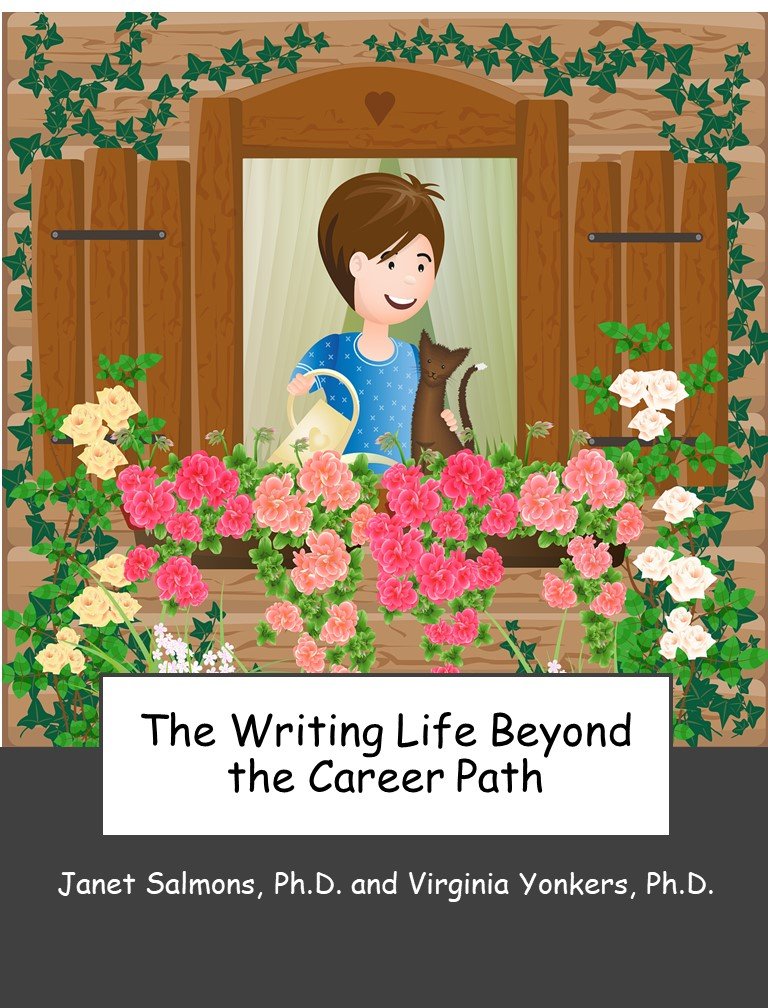Research for Non-Tenure Track Faculty in (and beyond) the Covid Era
By Virginia Yonkers
Dr. Yonkers contributed this post in spring of 2020, but the issues she raised are still relevant. If anything, they are relevant given that non-tenure track, adjunct, or contingent faculty members have felt more impact from the recent changes to academia than those who are in more secure positions.
If you are a non-tenure track academic like me, this spring has been anything but ideal for research. Whether you are a graduate student/instructor, or a part-time or full-time instructor on contract, the pandemic “pivot” to online classes has taken away any free time you may have planned on to conduct research or write up papers.
As I (and many of my contingent colleagues), scrambled to move our courses online, we soon found that we were also the go-to people for advice on innovative teaching methods and technologies. We were hired because we either had special instructional knowledge and/or training or because we had real world experience that suddenly became important in a pandemic (education, public policy, social media, public health, emergency services, healthcare). In fact, many of my colleagues were essential employees in addition to teaching. So we look on with envy at those academics who post on social media their research productivity over the last 2-3 months. Add to this the family obligations many of us had (both towards older relatives or our own children) and it seems that 2020 will be the year that all of our research went out the window.
However, despite these challenges, there are still ways that we can maintain some research activities with a bit of a tweak in expectations and plans. Here are some suggestions to keep moving forward with your research agenda:
Keep a journal or blog about your observations of what is going on around you (either pedagogically or in the world outside) that later you can turn into research. Perhaps it is new ways that you are doing your second job or changes in the way you are teaching. In education, this method of research called practitioner research is a commonly used. It requires observation skills, reflection, strategy testing, and documenting. Another method that can be used is case study, using your observations to develop a case (or a series of cases) for further analysis.
One positive that has come out of the pandemic is that there are many resources that have been offered free for a limited time. Take advantage of these offers and download articles, books, and digital artifacts that may have been behind a paywall at the beginning of the year.
References and databases concerning the pandemic are being published on-line to help accelerate solutions and management of the community response. If you are in a field where this can be studied, take advantage of the data available. New York state department of health, for example, has a breakdown of COVID-19 statistics by county, including testing, death rates, comorbidity and even neighborhoods that are hotspots.
Many conferences that required attendees and presenters to be on site have moved to an online format. This is good news for contract academics and graduate students that may not have been able to afford (either fees or time) to attend an international level conference. In some cases, the conferences are at a discount or even free for members. Take the opportunity to submit to these online conferences and virtually attend presentations.
Consider turning your online/remote course material into a publication or open educational resource (OER). Development of your online course material can also become the basis of literature reviews. You may be able to identify gaps in research and robust research questions through online class discussions. In other words, use the work for your online or remote learning preparation to develop your research or research writing.
Now is the time to revisit old papers or research ideas. Spend the time focusing in on specific research questions. Update the older papers using new research that may have come out within the last 5 years. In other words, it is not necessary to start a new study. One of my most cited articles was an update to a graduate paper my colleague had written five years earlier. Bringing in a writing partner who may have a new set of eyes can transform a paper that may have not been publishable previously.
Remember those tenured faculty that you helped pivot to remote learning? Do not be afraid to ask them for support or feedback if you get stuck in your research progress. Keep them updated on what you are working on. Sometimes that is all the motivation you may need to finish that research project.
The most important thing to remember though, if you are a contract academic, is that you can only do so much in these uncertain times. If you are unable to do any research, remember that many colleges and universities have put a hold on the tenure clock. In other words, if tenure track academics have been given flexibility, so should contract academics. For some, research is a way to relax. But for others, it can be one added burden that should be set aside until we are back to the new normal. Allow yourself permission to reach out to loved ones on the internet or spend time with your child.













Thinking about new beginnings in a new year? Perhaps it is a time to think abut what makes work meaningful to you, and how those priorities influence career choices. Reflect on these open-access readings about meaningful work.